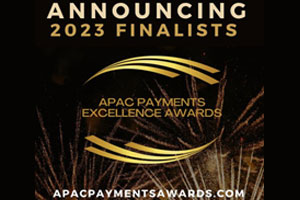- Published
- 10 May 2024


Product managers are expected to be like Mary Poppins – practically perfect in every way. Unfortunately we don’t have magic suitcases that contain the solution to every problem we come across. We need to rely on our skills, experience and sheer doggedness to deliver products which delight our customers and stakeholders.
The gradual expansion in the product manager role has meant that it’s moved from being a process-oriented role to much more strategy-led. This means that the skills needed to survive and thrive are more varied and demanding. To succeed as a product manager, not only do you need to stick to a budget and turn a profit you also have to juggle multiple competing demands, from both internal and external stakeholders, be the subject matter expert and try to keep your team and your customers happy.
I’ve been a product manager at many different companies and was also a partner at Brainmates for a number of years before my current role as Innovation Manager at Cuscal. I’m excited that my previous and current job are coming together this year with Cuscal sponsoring Brainmates’ Leading the Product conferences. So, as part of our preparation for the events, I caught up with some of my colleagues at Cuscal to see what they thought were the key skills you need to succeed as a payments product manager.
Here’s what we came up with!
Entrepreneurial ability
Gone are the days of static product management. These days you need to innovate to keep your product ahead of the fast-moving payments market. While it seems like everyone’s trying to be an entrepreneur these days, it’s a skillset which product managers at Cuscal really need to live and breathe.
It’s not all about innovation either, financial acumen and commercial savviness are equally important parts of being both an entrepreneur and product manager. Ultimately (unfortunately!) we’re not building products for fun or for our own pleasure, it’s about meeting a market need. We need customers to be willing to exchange value for what we’re producing.
I like the way my colleague Zac Andrew talks about having a level of entrepreneurial thinking around how the market is changing. In his view it’s important to know what opportunities are opening up that we can take advantage of. We do this in a variety of ways including reading industry news, networking with payment professionals inside and outside Cuscal and attending payments, finance and entrepreneurship events.
Leadership without authority
After entrepreneurial skills, this is probably the most important skill a product manager can master. While most of us don’t have any actual authority over people, it’s still down to us to lead, motivate, cajole and persuade cross functional teams to deliver a product customers will love, on time and on budget.
This isn’t easy. Many people don’t want the status quo to change and often they will be more senior to you and fighting to defend their existing revenue streams. Also, often your product management goals can conflict with project management goals. The primary goal for project managers is to get something completed on time. Product managers’ primary goal is to deliver value, both to your customers and your business.
So how do you overcome these challenges? You need to have strength, conviction, passion and a relentless desire to pursue and achieve your product vision, no matter what the challenges are. You also need deep market knowledge and to thoroughly know the craft of product management.
Strategic thinking and realisation
Back when ATMs were the pinnacle of innovation and the chequebook had pride of place in your bag, being a product manager in payments was a pretty slow-paced job. But now, with the digital revolution, agile development and the resultant proliferation of payment products – being a product manager in payments is not for the faint of heart.
This has led to a shift away from a strictly process-oriented form of product management towards one which is more strategy-led. While product managers need to have an intimate understanding of how their products operate and move through the product lifecycle they need to strike a balance between ironing out technical minutiae and keeping an eye on the product’s strategic direction. Failing to do this could mean a significant opportunity cost to your business.
It’s important therefore that product managers remain future-focused and keep close watch on the biggest and most commercially viable opportunities for their product down the line. For Zac another important part of strategy is having a thorough understanding of his products’ costs and revenues along with a detailed knowledge of exactly how they function. This allows him to have a flexible strategy where he can easily decide to cut costs, create efficiencies, increase profits or stimulate demand.
Relationship management
A flair for managing relationships, of many different kinds, is also very important. Empathy, both for stakeholders and customers, is a crucial part of this.
My colleague Laurice Ylen joined Cuscal 15 years ago but transitioned into her role as Product Manager, Payment Solutions only recently. While the unique demands of being a product manager are new to Laurice, her experience has prepared her very well to manage the complex spectrum of internal and external stakeholders. She says, quite rightly, that it’s a very visible role where both clients and colleagues look to you as the expert in your product and they all have high expectations and demands.
At Cuscal we have a B2B2C business model and, as Zac notes, this intensifies both the number and kinds of relationships we manage: “Stakeholder management or relationship management is huge because you’re dealing with a wide range of stakeholders at very different levels so again, in an environment where you are B2B2C, you’ve got multiple hats to wear. There’s some people I can’t influence directly too, like cardholders, because our clients control that relationship so I need to partner with my clients to get the best end result.” Indeed the skill to influence is central to managing any product, particularly in conversations that stretch beyond its function to more strategic and business-centric discussions.
Our tagline at Cuscal is ‘the complete payments partner’ and this informs the way we manage our products too. We try to evolve our plans and strategy in collaboration with our clients so that when we introduce new products, or make changes to our existing ones, their needs and requirements are worked into the overall plan.
While all of these skills are important I think they can all be boiled down to one phrase. Knowing your product is important, leading your product is paramount.
By Natalie Yan-Chatonsky, Innovation Manager



